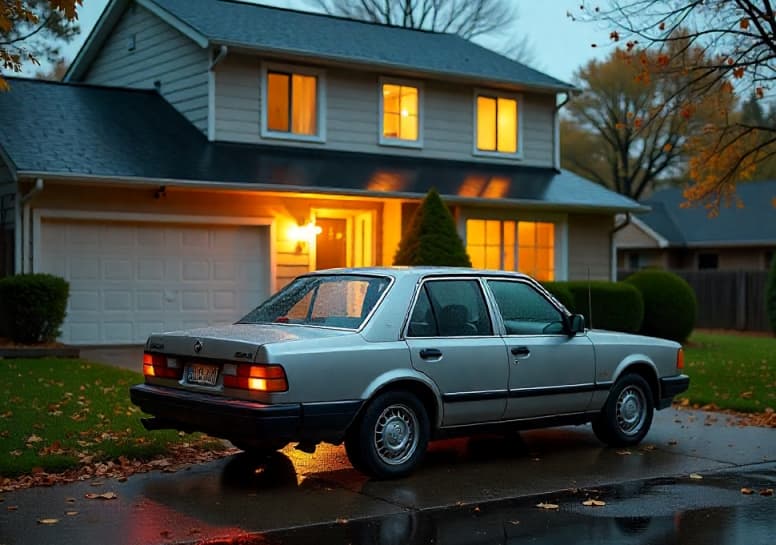Is Blocking a Driveway Illegal?
Yes, in most places, blocking someone’s driveway is illegal. It’s not just inconsiderate: it’s a violation of the law.
When someone parks in front of your driveway without permission, they’re not only invading your space but also creating a potential hazard. This kind of obstruction can delay emergency vehicles, block people from leaving for work or appointments, and even escalate into safety issues during urgent situations.
In the United States, laws vary by state and city, but nearly every jurisdiction treats this as a traffic offense. For example, in Los Angeles, it’s a clear violation under the city’s municipal code. Fines typically start at around $60–$70, and in many cases, the vehicle can be towed without warning if it’s on private property.
In the United Kingdom, local councils have the power to issue fines and remove vehicles that block residential driveways. Under Civil Parking Enforcement, obstructing access to a driveway is taken seriously and can result in immediate penalties.
In Canada, the rules also depend on the province or city, but the general stance is similar: blocking someone’s driveway without consent is not allowed. Cities like Toronto have specific laws that allow for both ticketing and towing of vehicles parked illegally in front of driveways.
Even if a car is only partially covering the entrance, it can still be considered illegal depending on local codes. That said, enforcement can vary.
In some areas, police or parking enforcement may require you to provide photo evidence, a timestamp, or proof that your driveway access was completely blocked before they can act.
How to Handle a Car Blocking Your Driveway?
Since blocking a driveway is considered illegal in many areas, you don’t have to just sit and wait. Let’s walk through some simple, effective steps you can take to handle the situation the right way:
Assess the Situation First
Before you react, take a moment to breathe and evaluate what’s going on. Is the car completely blocking your driveway or just partially? Can you still get in or out? If it looks like a quick stop or a delivery, the situation might resolve itself within minutes.
Look for the Driver
Check with nearby neighbors to see if they know whose car it is. Sometimes it’s a visitor or service provider who parked without thinking. If you can’t find anyone, consider leaving a polite note on the windshield asking them not to park there again.
Document the Blockage
Take clear photos of the vehicle, including the license plate and how it’s positioned in front of your driveway. Make sure to capture the time and location. This documentation will help if you need to report the issue.
Contact Local Authorities
If the car is fully blocking your driveway and the owner can’t be found, call your city’s non-emergency police line or parking enforcement.
Let them know the situation and provide the details and photos you collected. They may issue a ticket or have the vehicle towed, depending on your local laws.
Here’s your quick list of non-emergency hotlines by country and region:
| Country/City | Non-Emergency Contact | Notes |
|---|---|---|
| United States | 311 | Connects to municipal services for parking and other local issues |
| United Kingdom | 101 | Connects to local police for non-urgent matters |
| Canada | 416-808-2222 | Police non-emergency line |
| Australia | 131 444 | Police Assistance Line (non-urgent) |
| New Zealand | 105 | Police non-emergency number |
| Singapore | 1800-255-0000 | Police Hotline (non-urgent) |
| Hong Kong | 2527 7177 | Police non-emergency hotline |
Know Your Rights and Local Laws
Blocking a driveway is illegal in most places, but the enforcement process depends on your area.
Some cities will tow immediately, while others need a complaint from the property owner. Look up your local parking laws so you understand what action can be taken and by whom.
Read Also: What Happens if Your Car is Damaged While Being Towed?
Think About a Tow if Needed
If your city allows it and the car is on your private property, you may be able to call a tow company directly. Just make sure you have the right signage posted and you’re following local rules to avoid legal trouble yourself.
Avoid Taking Matters Into Your Own Hands
It’s important not to damage or move the vehicle yourself, as this could lead to legal trouble. Let law enforcement or authorized towing services handle it.
Prevent Future Incidents
Put up visible “No Parking” or “Driveway in Use” signs. Security cameras can also discourage careless parking. If it’s a recurring issue, talk to your neighbors or your local homeowners association about creating clearer community rules.
Conclusion
A blocked driveway is inconvenient, but a structured approach can resolve the issue quickly and legally. Know your rights, gather evidence, and use calm, lawful measures to find a solution.
